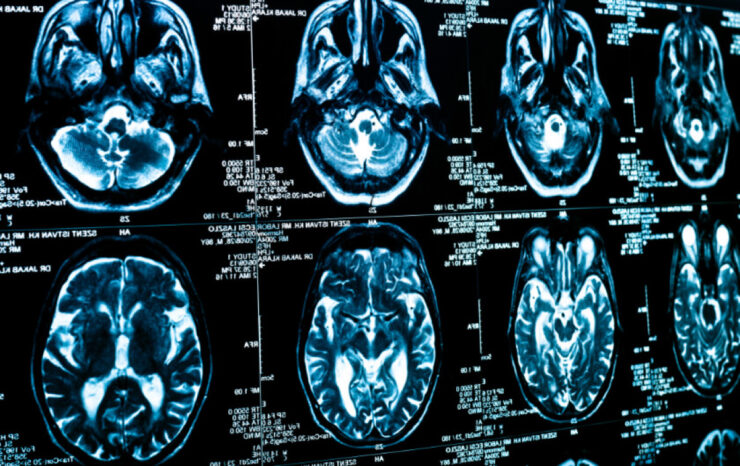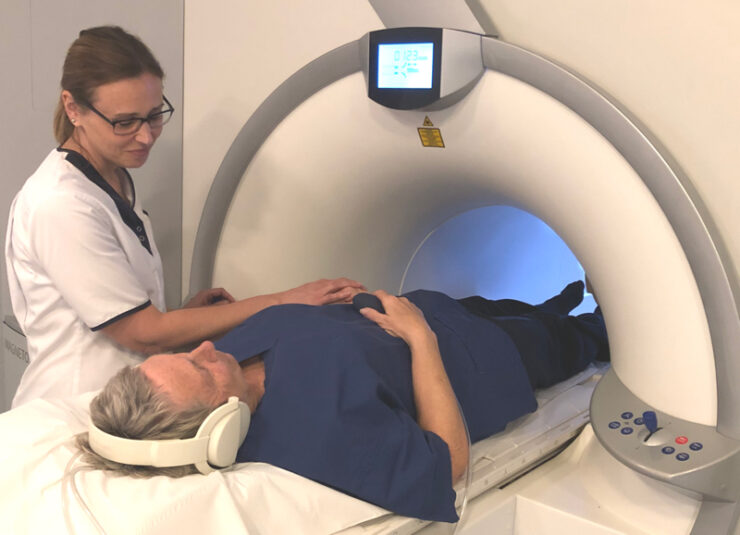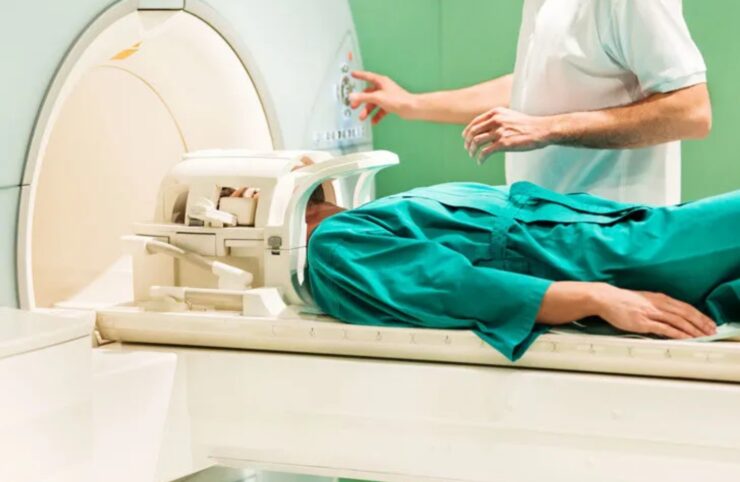Thanks to the advances that happened every day in advanced technology, today we can detect some health problems very easily and quickly. There are many diseases today that do not show any symptoms, and by the time we wait for the symptoms to emerge, unfortunately, it may be too late to take action and treat the disease. However, timely visits to the doctor can help monitor the condition of our body and health. As one of the best machines that can help us save our lives and act promptly in dealing with health problems is the MRI machine. This machine has been used for decades in hospitals to detect various anomalies and diseases of the body, and a large number of patients who have some kind of illness pass through it every day.
This scanner produces images of the internal organs of the body and gives us results that we cannot see with the naked eye. The principle of operation of this machine is quite simple. Images are created using magnetic fields and radio waves, and this type of machine is mostly used in the radiology department of hospitals. Doctors and medical staff often use this scanner to see what kind of injury or disease it is, so it is used to take pictures of fractures and torn ligaments in the body, but it is most commonly used to scan the head to find tumors, brain injuries, dementia or stroke, etc. But one of the most frequently asked questions of patients is whether the MRI machine can be used to detect infections and inflammatory diseases.
If you are wondering the same thing, then you are in the right place, because through this article we will reveal the answer to this question.
1. Detecting infections

The immune system is a very strange phenomenon that can reveal a lot about the human body and over the years many scientists through experiments and evidence have discovered many insights that in some way helped us understand how the body works. There is one fact that is well known to us, and that is that the human organism is prone to infections that can be of different nature. Primarily they can be divided into external and internal. And further, this division is classified as viral, bacterial, fungal, parasitic, and prion infections.
Some of the infections that the body can face can be in a mild form and can be detected quickly, but some of them can be very fatal and difficult to recognize. But today, thanks to magnetic resonance imaging, some of them can be detected in time and a diagnosis and treatment can be approached. If we take bacterial infections as an example, in which the distinguishing sign is a watery fluid that accumulates in some part of the body or organs, this scanner can read this fluid very easily and quickly. That is, if you were to undergo your scan with the machine, the images would clearly show whether the symptoms you are experiencing are the result of a bacterial infection. As quick and easy as this method is to find these ailments, it can also be problematic.
Some patients are strictly forbidden to be examined on this scanner, such as people who have some metal components in them as a result of fractures, or they can be people who have implanted pacemakers.
2. Detection of inflammatory diseases

These diseases, as well as infections, are very risky for people’s health if they are not detected in time and appropriate measures are not taken for their treatment. Almost half of the population at some point in their life had this type of disease and it was necessary to do magnetic resonance to detect where exactly the inflammation is occurring, and on which organ it is focused. Inflammations can occur in the respiratory organs, in the form of asthma, in autoimmune diseases such as lupus, in diseases of the intestinal organs such as Crohn’s disease, and organ transplants when the body rejects the transplanted organ, etc.
How can MRI recognize some of these diseases? By allowing professionals to take a detailed picture of the soft tissue or bone marrow in your body. No other machine can show bone injuries in as much detail as an MRI scan. The images provide clear results according to which doctors approach further treatment of the patient. The symptom of bone inflammation can often be a sign that the person suffers from arthritis, which affects every 10th person on the planet, or it can be bone cancer. To detect exactly what and where the inflammation occurs, your doctor must refer you to an MRI machine that will help analyze the internal organs.
Can you have an MRI scan on your own?

If you have any of the symptoms we’ve mentioned today, feel free to let your doctor know that you want this type of scan. Based on your symptoms and medical history, your doctor will give you an answer as to whether this is the right solution for you, that is, whether you can undergo the magnetic machine or not. If you receive approval from him, you can immediately take a detailed picture of the part of the body where you feel the symptoms.
Often people do not know what kind of tests the MRI machine is used for, so they unnecessarily use it to diagnose health problems. In some cases, only ultrasound or X-ray is enough to find the problem. If you want to know as much as possible about this topic, that is, which of the machines is used for which type of examination and in what form the results are obtained, I recommend you to go to this website where it will be explained in detail.
Health is the most important thing for a person. When you feel good it seems like you have everything in this world. That’s why we should regularly go for checkups with our doctor and not ignore any symptom that makes us feel bad in our body. I hope this article will be of great help to you in understanding what kind of diseases and ailments the MRI machine is used for in healthcare. In the end, I can only wish you good health that will serve you and your family and the closest people in your life.

